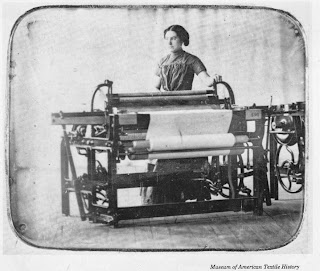The Industrial Revolutions in Great Britain and the United States both had many advantages and disadvantages compared to each other. While both the United States and Great Britain had many opportunities for industrialists, Great Britain was the better place for them. One reason that Great Britain was the better place is that labor was plentiful there. Rich landowners took farmland from the peasant farmers, forcing them to move to the cities and work in factories. All of these farmers looking for jobs gave industrialists a plentiful source of labor whereas in the United States there was plenty of unclaimed land for people who travelled far enough west. This abundance of labor allowed factory owners to pay their workers very little and make them work in dangerous conditions for long hours because they could always find a replacement for an unhappy worker. Great Britain was also advantageous for industrialists because of the lack of labor laws in place. The laws about child labor in Great Britain were far less restricting than those in the United States. Children were allowed to work longer days and in more dangerous conditions, like mines. Child labor was the cheapest form of labor so having minimal restrictions on it is ideal for industrialists. The interests of the government also were better in Great Britain. The government in Great Britain was easily corrupted by money and served the interests of the wealthy industrialists. The British government had always been controlled and influenced by the upper class, so the industrialists were more likely to get what they wanted as opposed to the working class. Because of these reasons, industrialists were more likely to succeed in Great Britain.
While Great Britain was the better place for industrialists, the United States provided the more positive experience for workers. One reason is the workers worked less hours and had more breaks. Emily Nutter, an average Lowell mill girl, worked 12 hour days and got breaks for all three meals. In comparison, William Cooper, a young British factory worker, only received a break for lunch and worked 16 hour days, while his sister worked 18 hour days. Another reason the United States was the better place for workers is the conditions in the factories. As Charles Dickens said in his visit to the Lowell mills, the girls “were all well-dressed: and that phrase necessarily includes extreme cleanliness” and “they were healthy in appearance, many of them remarkably so, and had the manners and deportment of young women.” Dickens was comparing the mills to his experience in the factories of Great Britain. He thinks that the girls are being treated well because they are clean and healthy and also had developed the manners of a woman while working in the mills. He also describes the factories themselves as places with “as much fresh air, cleanliness, and comfort, as the nature of the occupation would possibly admit of.” In Great Britain, the factories were much filthier and more dangerous. Overall, the experience for workers in the United States was much better than in Great Britain.

No comments:
Post a Comment